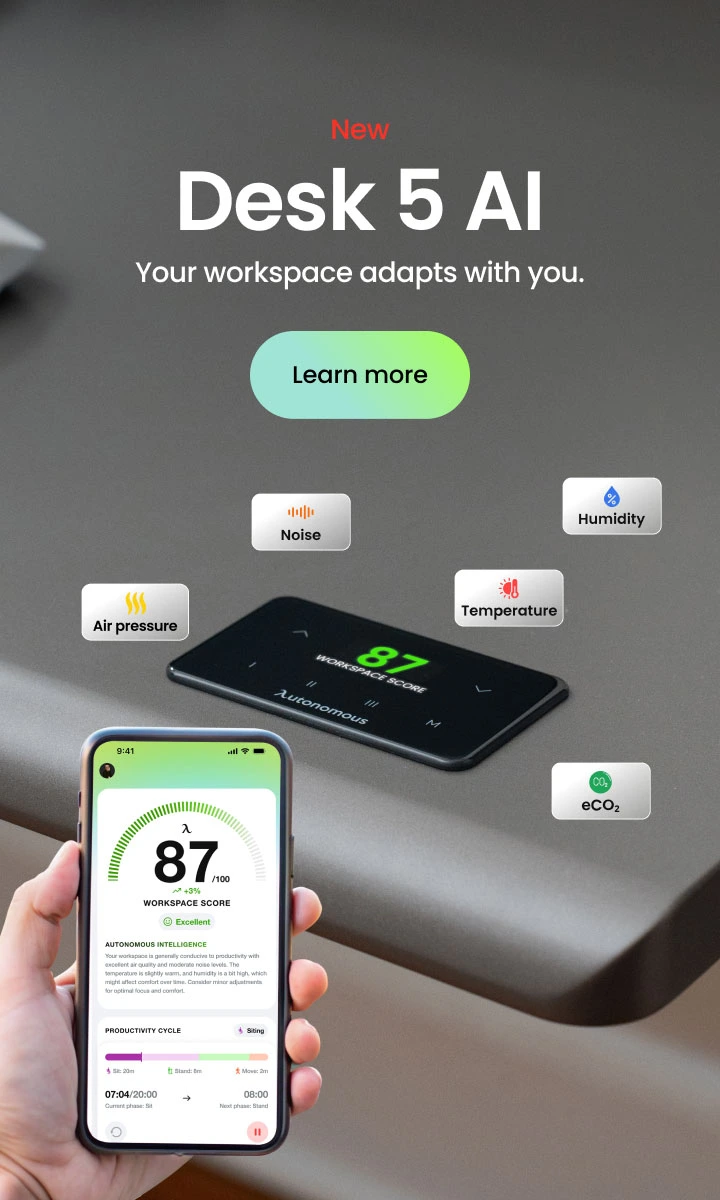.webp)
AI in Private Equity: Benefits, Applications, and EdgeAI’s Support
Table of Contents
- 1. What is the Role of AI in Private Equity?
- 2. Key Applications
- 2.1. Advanced Deal Sourcing and Evaluation
- 2.2. Enhanced Due Diligence with AI Automation
- 2.3. Portfolio Management and Operational Efficiency
- 2.4. Data-Driven Exit Strategies
- 2.5. Proactive Risk Management with Predictive AI
- 2.6. AI in Deal Sourcing and Market Research
- 2.7. Real-Time Portfolio Reporting and Capital Preservation
- 3. How EdgeAI Supports AI-Driven Private Equity Processes
- 4. Potential Risks of AI in Private Equity
- 5. Getting Started with EdgeAI
- 6. FAQs
- 7. Embracing AI in Private Equity
Artificial intelligence (AI) is reshaping private equity (PE), fundamentally changing how firms operate across the investment lifecycle. From deal sourcing to portfolio management and exit strategies, AI is enabling private equity professionals to make data-driven decisions, manage risks, and optimize operational efficiencies. This comprehensive guide explores the transformative impact of AI in private equity, detailing its primary applications, potential benefits, and how secure tools like EdgeAI can play a supportive role.
1. What is the Role of AI in Private Equity?
In private equity, AI serves as a powerful tool to enhance decision-making processes, optimize operational efficiencies, and manage risks. AI’s capabilities cover various aspects of the investment lifecycle, including screening potential investments, conducting due diligence, and managing portfolio companies. With the automation of repetitive tasks and the discovery of insights hidden within data, AI allows PE firms to concentrate on strategic decisions and create value across their investments.
2. Key Applications
2.1. Advanced Deal Sourcing and Evaluation
AI-based deal sourcing technologies are proving to be game-changers for PE firms. Through machine learning algorithms, AI can process data from a multitude of sources—financial reports, industry news, social media mentions—to detect investment opportunities that align with specific criteria. Unlike traditional methods that rely on manual research, AI can surface opportunities faster and with greater precision. For example, AI algorithms can monitor emerging trends in niche markets and flag potential high-growth companies before they attract broader attention.
2.2. Enhanced Due Diligence with AI Automation
Due diligence is a cornerstone of private equity, though it often demands significant time and resources. AI-driven tools simplify this process through automation of tasks like document review, financial analysis, and compliance checks. Leveraging natural language processing (NLP), AI sifts through legal documents, contracts, and financial statements to highlight anomalies or potential red flags. Additionally, AI models trained on historical fraud cases help predict risk factors that may not be immediately apparent, lowering the likelihood of costly oversights.
2.3. Portfolio Management and Operational Efficiency
AI significantly enhances the performance of portfolio companies through real-time data analytics. Continuous monitoring of key performance indicators (KPIs) enables portfolio managers to make informed decisions on resource allocation, cost management, and revenue enhancement. For example, AI-driven predictive maintenance supports manufacturing-focused portfolio companies in forecasting equipment failures and preventing costly downtime. Furthermore, AI algorithms offer insights into customer behavior, allowing for more precise targeting and personalized marketing efforts that drive sales growth. For more insights on the top AI tools that can streamline and enhance marketing efforts, you can explore this guide on the best AI tools for marketing.
2.4. Data-Driven Exit Strategies
Exit timing can make or break a private equity investment. AI tools facilitate dynamic valuations by incorporating real-time data such as market trends, industry shifts, and competitor moves. This data-driven approach allows PE firms to fine-tune their exit strategies and capitalize on market conditions. AI-powered predictive analytics can offer actionable insights into the optimal time to exit an investment, potentially maximizing returns for investors.

2.5. Proactive Risk Management with Predictive AI
Effective risk management is essential for PE firms, and AI provides a proactive approach to identifying and mitigating risks. Tracking a range of external and internal factors, AI models can flag potential risks before they fully develop. For example, AI tools monitor regulatory changes, economic indicators, and shifts in consumer sentiment that may affect portfolio companies. This real-time risk assessment allows PE firms to respond quickly to emerging threats, helping portfolio companies maintain resilience in volatile markets.
2.6. AI in Deal Sourcing and Market Research
Deal sourcing is a crucial component of private equity, with AI transforming how firms identify and pursue potential investments. Analyzing patterns in market data, financial performance, and industry news enables AI to uncover hidden opportunities. Advanced AI tools can even predict which industries are likely to experience growth, allowing firms to proactively target investments in emerging markets. This approach not only broadens the deal pipeline but also positions PE firms to capitalize on early-stage opportunities.
2.7. Real-Time Portfolio Reporting and Capital Preservation
Private equity firms often manage a diverse range of portfolio companies, each with unique reporting requirements. AI-driven reporting tools automate the aggregation and analysis of financial and operational data, ensuring that firms have a comprehensive view of their portfolios at all times. These tools can also assist in capital preservation by forecasting market downturns and alerting firms to potential risks. With real-time insights, PE firms can take preemptive actions to protect their investments, such as reallocating resources or adjusting their strategies.

3. How EdgeAI Supports AI-Driven Private Equity Processes
EdgeAI: Private AI Chat, though not a direct replacement for traditional AI tools, offers value in areas where confidentiality, security, and private collaboration are essential. Here’s how EdgeAI can complement AI applications in private equity:
- Confidential Brainstorming and Strategy Development
EdgeAI provides a secure space for PE professionals to discuss strategies around deal sourcing, risk management, and investment opportunities. With no accounts or tracking involved, teams can explore new ideas and investment theses without leaving a digital trail, ensuring that confidential discussions remain private.
- Secure Due Diligence Consultations
During due diligence, PE firms can use EdgeAI for private conversations regarding sensitive information uncovered in the process. This enables early-stage risk assessment and confidential collaboration before finalizing decisions. EdgeAI’s secure environment is especially valuable for initial discussions on compliance and potential risks, keeping sensitive data within trusted channels.
- Preliminary Investment Research and Idea Generation
EdgeAI’s judgment-free chat feature enables PE professionals to explore emerging markets or investment themes in a secure manner. Users can discuss trends and conduct preliminary research in a private setting, gathering insights that might be explored further with dedicated AI analytics tools.
- Confidential Consultation with External Experts
Private equity firms often seek expert opinions on specific industries or market conditions. EdgeAI can be a safe platform for anonymous consultations with advisors or industry specialists, facilitating candid discussions without the need for formal communications that may be recorded or tracked.
- Private Drafting of Investment Memos and Proposals
For preliminary drafts of investment proposals or strategy documents, EdgeAI’s writing assistance ensures that content remains confidential. This is particularly useful when preparing sensitive documents that will later be reviewed and formalized. EdgeAI ensures these early drafts are stored only on the user’s device, preserving privacy and data security.
In addition to privacy features, EdgeAI integrates advanced AI capabilities like a free AI image generator, enabling users to create visuals directly within the platform. It also utilizes Llama AI, a robust open-source language model, enhancing its ability to generate insightful responses.
EdgeAI further supports PE professionals with versatile tools, including tips and tricks to use AI tools for image generation and capabilities built on large language models. These features facilitate secure brainstorming and collaborative discussions, enriching strategic development in a confidential setting.

4. Potential Risks of AI in Private Equity
While AI provides numerous benefits, there are risks to consider. Data integrity and quality are essential for AI accuracy, so PE firms must invest in reliable data sources. Additionally, cybersecurity is a concern, especially for AI systems reliant on cloud-based infrastructures. Finally, many firms operate with legacy systems, which can pose integration challenges.
EdgeAI mitigates some of these risks by offering a platform for secure and anonymous discussions that does not rely on external data storage. This privacy-centric approach helps protect sensitive information during initial phases of idea exploration and strategy formulation.
5. Getting Started with EdgeAI
To incorporate AI and tools like EdgeAI into your private equity firm:
Define Objectives: Identify specific areas within your investment lifecycle where AI can add value, such as deal sourcing or risk management, and consider how EdgeAI could support secure communications and brainstorming.
Invest in Data Management: AI thrives on quality data. Ensure that your firm has access to accurate, comprehensive data sources and strong data governance processes.
Select AI Tools and Complement with EdgeAI: Use specialized AI tools for data analysis, predictive modeling, and other quantitative tasks. For confidential conversations and preliminary idea exploration, integrate EdgeAI to facilitate secure, private discussions.
Build In-House Expertise: Consider hiring data scientists or collaborating with AI experts to optimize AI usage, and explore how EdgeAI can fit into your firm’s communication and collaboration practices.
Start with Pilot Projects: Begin by testing AI in specific areas, expanding adoption as you see results, while leveraging EdgeAI for secure, judgment-free brainstorming sessions and sensitive discussions.
/https://storage.googleapis.com/s3-autonomous-upgrade-3/production/ecm/240925/Scene4444444.jpg)
6. FAQs
How does AI improve lead generation in private equity?
AI analyzes diverse data sources to uncover potential investment opportunities that align with specific criteria, streamlining lead generation. EdgeAI can support this by providing a private space for discussing these leads securely.
Can EdgeAI aid in decision-making for private equity?
EdgeAI offers a secure platform for exploring ideas, discussing risks, and collaborating on strategies, which supports PE professionals in making informed decisions.
What are future AI trends for private equity?
Future trends include increased use of generative AI for scenario planning and enhanced risk management, with tools like EdgeAI providing confidential platforms for strategic discussions.
7. Embracing AI in Private Equity
AI is transforming private equity, empowering data-driven decision-making, optimizing operations, and enhancing risk management. While not a substitute for core AI tools, EdgeAI complements these advancements by providing a private, secure platform for confidential discussions and collaborative strategy development. Together, these technologies equip private equity firms to navigate a complex and data-rich environment, positioning them to lead in an evolving investment landscape.
Spread the word
.svg)







